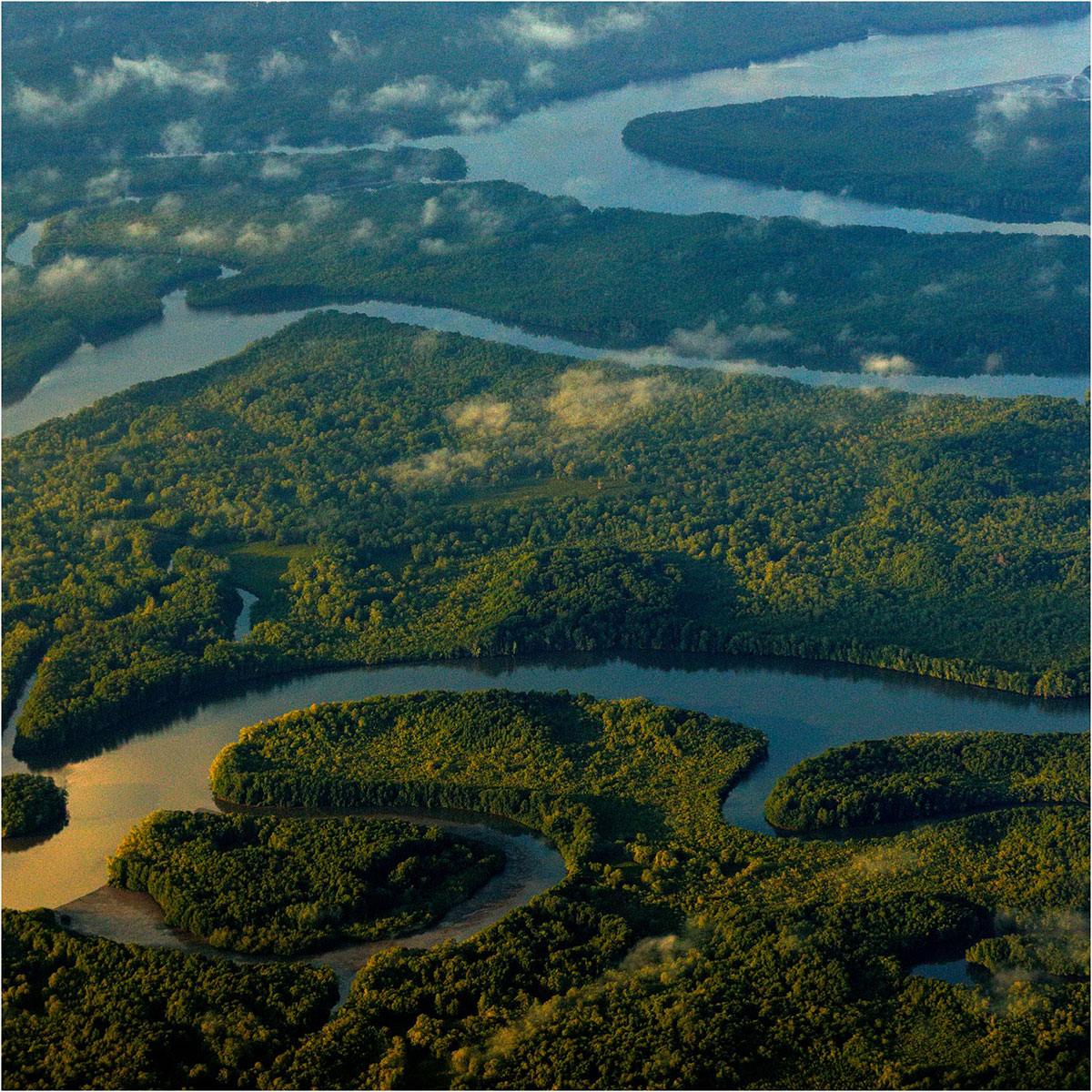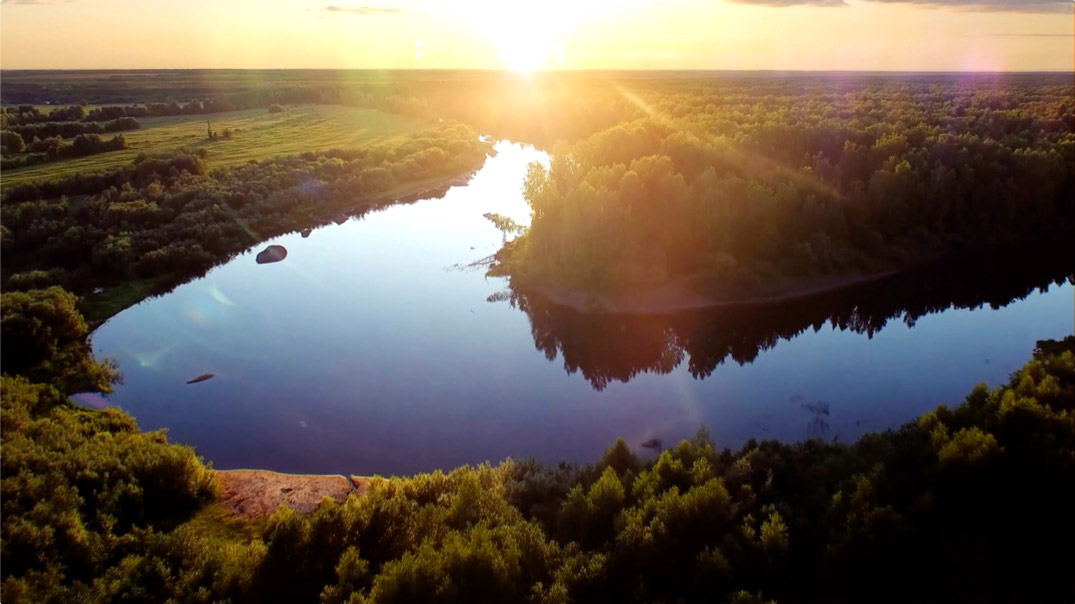The Intergovernmental Panel on Climate Change (IPCC) makes it clear that meeting the goals of the Paris Agreement requires large-scale protection and restoration of natural ecosystems.
Climate solutions grounded in science are critical to achieving the fundamental systems change to meet the goals of the historic Paris Agreement.
In order to keep the global temperature rise from exceeding 1.5° Celsius, systemic change spanning industries, sectors and geographies is essential.
To meet the climate challenge, businesses must focus first and foremost on accelerating large-scale reductions in operational emissions—being careful to keep pace with science-based pathways. But that will not be enough.
The stark reality of the pathways charted by climate scientists is that aggressive decarbonization of the major emitting sectors will not be enough to limit the global temperature rise to the Paris Agreement targets; atmospheric concentrations of greenhouse gases are already at dangerous levels. Accordingly, businesses have an opportunity to step outside their own walls and support nature’s potential for carbon removal and storage, including the protection and restoration of natural land, ocean and water ecosystems.
“This is very much an ‘and/also’ situation,” says Christiana Figueres, the former UN climate chief who oversaw delivery of the Paris Agreement and now co-founder of Global Optimism, an organization focused on social and environmental change. “We need to reduce emissions from the energy and transportation sectors—in fact, all infrastructure—and we also need to increase the absorption capacity that can come from nature-based solutions.”

“We need to reduce emissions from the energy and transportation sectors—in fact, all infrastructure—and we also need to increase the absorption capacity that can come from nature-based solutions.”
Christiana Figueres
Former Executive Secretary of the UN Framework Convention on Climate Change
Founding Partner of Global Optimism
Co-Founder of The Climate Pledge
These nature-based solutions must be delivered with intent, integrity and transparency to make tangible progress in fighting the urgent reality of climate change—and businesses have an important role to play by improving the rigor of their efforts and creating a sustainable market for these solutions now.
The ‘and/also’ mindset of
The Climate Pledge
The Climate Pledge, co-founded by Amazon and Global Optimism, calls on companies to commit to reaching net-zero carbon by 2040, 10 years ahead of the Paris Agreement. Companies that sign on to The Climate Pledge agree to three principle areas of action: 1) regularly measuring and reporting greenhouse gas emissions; 2) implementing decarbonization strategies in line with the Paris Agreement through real business changes and innovations; and 3) neutralizing any remaining emissions with additional, quantifiable, real, permanent and socially beneficial offsets.
To meet The Climate Pledge, Amazon continues to drive and embed decarbonization strategies throughout its own business. The company is the largest corporate purchaser of renewable energy, and is on a path to power operations with 100% renewables by 2025, five years ahead of its initial 2030 target. Amazon also purchased 100,000 electric delivery vehicles—the largest order ever of electric delivery vehicles—and has a vision to make all shipments net zero carbon, with 50% of shipments at net-zero carbon by 2030.
Nature-based solutions play a necessary, complementary and critical role alongside the decarbonization of business operations. These solutions can neutralize emissions that companies cannot yet eliminate due to technological barriers, and provide many benefits that preserve the natural world, such as conserving wildlife habitat, protecting biodiversity, improving water quality and reducing flood risk. All of these benefits can save lives and enhance well-being in communities around the world.
Global Optimism worked with many aligned organizations to convene Together With Nature, a group of scientists, researchers, academics, leading companies and NGOs, to set out a high-level vision for how to go about investing in nature, for both carbon removal and biodiversity enhancement.
To provide guideposts for companies and organizations, the group agreed on four principles for nature-based solutions.
Together With Nature:
Four principles for nature-based solutions
1 Cut
Emissions
Nature-based solutions are powerful tools to capture carbon from the atmosphere, but they are not a substitute for cutting greenhouse gas emissions.

2 Conserve and Protect Existing Ecosystems
Intact soils, forests, grasslands, shrub lands, wetlands and aquatic ecosystems are vital repositories of carbon and biodiversity. Yet we are losing them at an alarming rate.

3 Be Socially Responsible
We must fully engage Indigenous peoples and local communities and respect and uphold their rights and leadership.

4 Be Ecologically Responsible
Nature-based solutions must be founded on rigorous ecological principles. Biodiversity is vital for healthy ecosystems, which are more productive, resilient and beneficial.

“The protection of functioning ecosystems and biodiversity must be incorporated as a valued part of the overall strategy to accelerate climate action,” says Dr. Tom Crowther of Crowther Lab, ETH Zürich, and founder of Restor, a platform of ecological insights for restoration. “Founding nature-based solutions on rigorous social and ecological principles is key to their integrity, along with scientific monitoring and verification of carbon storage capacity and impacts on biodiversity and ecosystem health.”
Amazon is supporting the advancement of nature-based solutions through the Right Now Climate Fund, a $100 million initiative to reduce and remove carbon from the atmosphere through the restoration and conservation of forests, wetlands, grasslands and peatlands around the world.
Creating the highest standards to drive the biggest impact now
Today, an immediate opportunity exists to advance the integrity of nature-based carbon offsets spanning conservation, restoration and improved land management. In the past, carbon offsets developed a tarnished reputation because of a lack of reliable metrics and, in some cases, low-integrity use, and companies are taking action to improve monitoring and measurement.
“One of Amazon’s leadership principles is to insist on the highest standards, and this directly connects to our approach to nature-based solutions in addressing climate change,” says James Mulligan, carbon reduction research scientist at Amazon. “We’re not necessarily satisfied with the way things are done today and are investing in improving the credibility, transparency and rigor. We’re really looking to push the boundaries on how we can reach a higher standard of integrity in measuring the impact of these kinds of investments and projects.”

Nature-based solutions
could reduce emissions by11.3 billion
tons per year by 2030
Source: The Nature Conservancy
Amazon is working to address several issues at the heart of carbon offset integrity. With its own team of scientists, and through partnerships with organizations such as The Nature Conservancy, the company is reviewing accounting methodologies, monitoring systems and permanence assurance mechanisms to identify gaps and opportunities to reinvent how these markets work in the future. Amazon closely scrutinizes the nature-based projects it undertakes, investing only in initiatives that actually drive additional carbon reductions toward the objectives of The Climate Pledge and accurately account for those reductions. Amazon is prioritizing projects that present tangible opportunities to experiment with improvements in carbon measurement, monitoring and verification as well as projects that have a real economic benefit for local communities.
In June 2020, Amazon launched The Climate Pledge Fund, a dedicated $2 billion venture investment program backing sustainable technologies and services that will help Amazon and others meet their commitments to The Climate Pledge.

In the U.S., nature has potential to remove 21% of the nation’s carbon pollution—equivalent to removing emissions from ALL cars and trucks on the road.
Source: The Nature Conservancy
The fund has invested in Pachama, a climate technology company that tracks and verifies carbon sequestered in the world’s forests to help advance the sophistication and transparency of project monitoring for nature-based solutions.
“As the climate crisis becomes more urgent every day, proving the integrity of nature-based solutions is essential. We’re thrilled to be able to accelerate our work with the support of Amazon’s Climate Pledge Fund,” says Diego Saez-Gil, Pachama founder and CEO. “We started this company two years ago with the mission to unlock the full potential of forests and natural ecosystems to remove carbon dioxide from the atmosphere. This can only be achieved by increasing the transparency of carbon offsetting. Pachama is the first carbon offsetting company to use a combination of satellite and lidar data, processed with machine learning to accurately verify and monitor the carbon sequestered by trees. We are committed to validating every project onboarded and every credit sold.”
Through The Climate Pledge, The Climate Pledge Fund and Right Now Climate Fund, Amazon sees an important opportunity to reinvent the voluntary offset market and improve how nature-based projects function by bringing together companies with significant scale to commit to and invest in innovative new science.
“Amazon’s priority is driving real change at the scale needed to stop the most devastating effects of climate change now,” says Kara Hurst, Amazon’s Head of Worldwide Sustainability. “Advancing offset integrity means rethinking the current approach, developing new science and insisting on better investment criteria as a whole.”


Appalachia
Appalachia is a cultural region in the Eastern United States that stretches from the Southern Tier of New York State to northern Alabama and Georgia.
Families across the country own 290 million acres of America’s forests—more than the federal government or the forest industry.
That is more acres than the state of California and Texas combined.
However, many family owners are living below the poverty line and have been left out of the new climate economy.
Conserving these family forests has the potential to sequester tens of millions of metric tons of carbon dioxide per year, and this potential can be unlocked by enabling streamlined and lower-cost methods for landowners to earn income through the carbon markets.
Amazon’s grant will expand conservation and restoration programs in climate-resilient forests across the Appalachians, and will help develop an innovative, scientific approach to regional carbon impact measurement.
Helping cities build resilience to climate change
Nature-based solutions offer societal advantages beyond rural areas. The Right Now Climate Fund’s first project outside the U.S. is in the heart of one of Europe’s largest cities: Berlin.
The Nature Conservancy’s Urban Greening program in Germany, supported by a $4 million commitment from Amazon, helps cities become more climate-resilient. The first project is being developed in Berlin’s Charlottenburg-Wilmersdorf district.
“In addition to carbon capture, nature-based solutions can help improve the resilience of communities to the impact of climate change,” says Mulligan.


Berlin
Charlottenburg-Wilmersdorf
Charlottenburg-Wilmersdorf covers the western city centre of Berlin and the adjacent affluent suburbs.
Urban greening reduces flood risk by improving rainwater retention through tree planting, revitalizing urban wetlands and adapting existing green spaces.
Leveraging unused public spaces to plant trees and improving urban water bodies can reduce extreme heat and pollution.
And introducing pollinator-friendly species, climate-resilient plants and grasslands increases urban biodiversity.

“Now is the time to think big and work toward innovative solutions to climate change,” says Hurst. “Amazon is working to identify nature-based solutions that complement our work to address the climate crisis, and empower communities, enhance natural environments and protect wildlife.”
Kara Hurst
Amazon’s Head of Worldwide Sustainability




